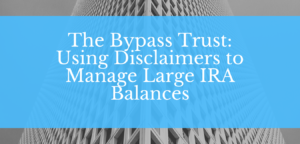U.S. Treasury Making Push to Keep More Corporate Taxes Home

For any company considering a tax inversion, the latest news form the U.S. Treasury will likely make it reconsider. Tax inversions, which are used by American companies to reduce their tax bill, occur when a company acquires or opens a subsidiary in a foreign country in order to change its tax address and save millions. Many companies have employed this tactic in recent months, which has caused the government to increase its efforts to stop them.
According to the Treasury Department, the new regulations are aimed at fixing the country’s broken tax system. Specifically, the new regulations from the IRS and the Treasury will seek to put an end to the “earnings stripping” process. This occurs when a company pays deductible interest to an affiliate or parent company in another country, which has lower taxes.
While many corporations have expressed displeasure with the government’s efforts the current White House administration, along with the IRS and the Treasury, has pushed forward to make these changes, especially to target earnings stripping. The department did announce that it would offer a “broad exemption” for short-term loans and cash pools. It also said the effective date won’t be until January 1, 2018, so companies will have more time to prepare and comply with the changing regulations.
You also might like How Much are U.S. Companies Paying in Corporate Tax?
http://www.cnbc.com/2016/10/13/treasury-takes-its-latest-step-to-keep-corporate-taxes-in-the-us.html
Land Management: Conservation Easements
Land Management: Conservation Easements Real property–land and the home or other structures on it–often has special significance to the family that owns it, to the surrounding community or to the ecology of the area. It may have played a role in an historical event; provide habitat for wildlife; command a magnificent view; or offer access…
Personal Finance 101
Personal Finance 101 The subject of personal finance is very broad, but as a beginning, I would like to discuss what I consider the foundations of personal finance: Security, Stability, Growth and Protection & Management. Security Security to me means that I am prepared for the “hit by a bus” scenario. I have life insurance…
Saving for Retirement: 5 Steps to Building Significant Wealth
Saving for Retirement: 5 Steps to Building Significant Wealth Are you saving enough money for retirement? Do you know how much money you need to accumulate in order to retire? Are you concerned about how you should be saving for retirement? The simplicity of these questions can lead many people to believe that there is…
The Bypass Trust: Using Disclaimers to Manage Large IRA Balances
The Bypass IRA Trust: Using Disclaimers to Manage Large IRA Balances By Mary Kay Foss California CPA, December 2001Trying to fund a bypass trust can be problematic if clients only have a residence and a large retirement plan as their major assets. On the surface, a residence isn’t a good asset for a bypass trust…



